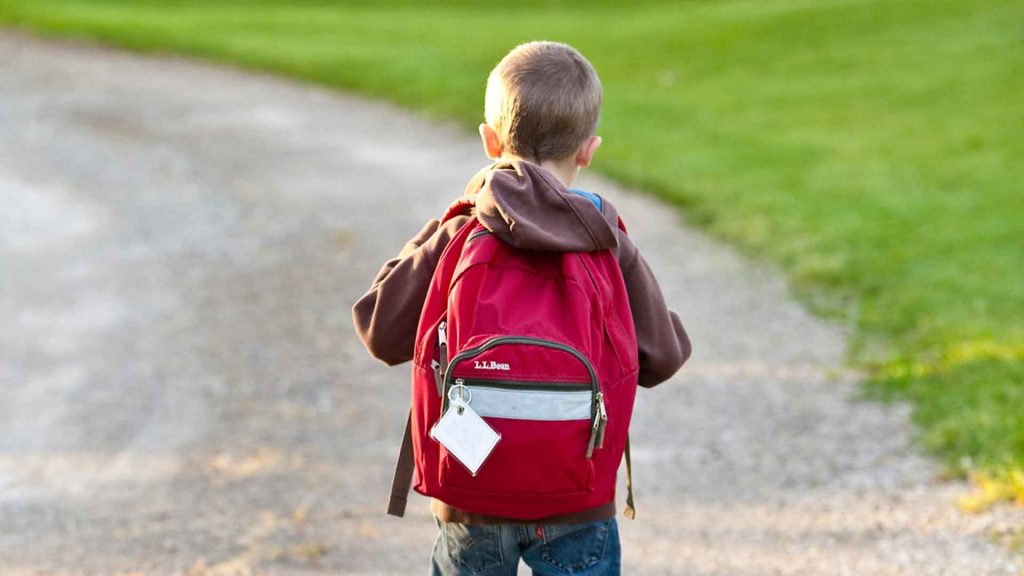
Parent Hacks to Boost Regular School Attendance – Jacqui Van de Velde
Regular school attendance is really a “no brainer” when it comes down to the factors that contribute to school success for students. There is a legal requirement for attendance in each jurisdiction. Improving attendance and retention rates have become embedded social and economic policy goals. Away from the regulatory environment schools and teachers are being challenged to address student engagement and develop new pedagogies. There are two aspects critical to improving attendance that have not been addressed as rigorously yet:
- Investigation into what it is that motivates rather than compels young people to attend school.
- Harnessing parent power in the quest for higher school attendance and engagement in learning in school.
Some interesting inquiry has been undertaken on the nature of schools and participation in education as a protective factor and for young people. While the focus of this research has been harm minimisation and mental health, they are an interesting precursor to thinking about student motivation. Another significant step in finding motivation has come from some of the practical research undertaken by Australian clinical psychologist Lyn Worsley in her work on resilience. From her clinical work, Worsley has identified factors that contribute to a young person’s resilience. In the context of this piece, the role of the Education Factor is worth looking at. Worsley highlights the role of teachers and their connection with the student, a nurtured sense of belonging, and high expectations as key to school and education being a protective factor. It does not take much lateral thinking to also see they are motivational as well.
Acknowledging the home-school connection is also important. Connecting home and school is an essential part of this discussion. Parents and family are more than the first line of enforcement when it comes to school attendance and learning. School is not the only place young people learn. The larger proportion of a young person’s life 0 – 18 years is spent outside of the school landscape. Learning happens all the time. Parents and families are uniquely placed to model, teach, form, and nurture essential human competencies, both personal and social. Supporting Parents have a significant impact here, perhaps that is a topic for another journal piece.
There is a quantum of research into parental attitudes towards school and education and the impact that has on student attitudes and outcomes. It doesn’t come as a surprise that there is a positive correlation between positive parental attitudes towards school and positive student attitudes, performance, and outcomes in education.
How do we bring together the unique contribution parents make to the education of their children and positively influence the child’s view of school and create an environment that supports higher attendance?
Here is a checklist for you to think about:
- Parents, you may have had a difficult school career when you were at school, but it is highly probable that it wasn’t a total write-off, all day, every, single day. Think about the exceptions. Write them down. Describe what was good, “OK” or “not as bad”, about those times. Build a picture of what worked for you and what was different in those moments, days, the exceptions. There may only be a few, but you can channel those times for your children!
- Be mindful about the language and conversations you have with your children regarding school and particularly about teachers. Our choice of words, tone, potential incongruence between what we say and our body language, can all build unintended nuances in the message and meaning we communicate about school and education to our children.
- Be your child’s advocate and check yourself for “helicopter, lawnmower, or bulldozer” inclinations. We always want the best for our children, we don’t want them to see them have difficulties and struggles. The best and most fruitful lessons are the ones when they do it tough; can work through it and know they did it with the support and encouragement of the home base cheer squad.
- Have high expectations and build a positive experience of school. See your child as capable of coping and capable of change. Coach your child to start thinking about and then articulating, how aspects of school life they might be struggling in can be different. Here are some examples:
- “If your assessment results were on the rise or you are performing better in class, what would you be doing that would have caused that to happen?”
- “What would others in your group say you were doing that would show them that you are getting along better with them?”
- Instead of talking about the absence of a behaviour, turn it around and ask them what they would be doing instead? ie “If you weren’t getting into trouble for talking all the time, what would you be doing instead?” Then add more positives by asking “What would you be doing?” or “What does it look like when….” or “How would things be different?”
- In your parent-coach role, you don’t need to jump in and have all of the answers or any answers to the questions above. Give your child time to think, process, and come up with their own “how-to”.
- Acknowledge and celebrate the small changes. Sometimes parents will be the only ones who will notice. It is that unique bond they have with their children, “parent knowledge”, that allows them to notice the small stuff they can complement and build on with their children.
- Ask questions about your child’s school day as part of a family conversation. Encouraging children to share their daily experiences as part of the regular family conversation with active and curious listeners, helps to cement the validity of their lived experience and its value.
Footnotes:
- Student attendance . 2019. Student attendance . [ONLINE] Available at: http://www.acara.edu.au/reporting/national-report-on-schooling-in-australia-data-portal/student-attendance. [Accessed 21 February 2019].
- Australian Institute of Health and Welfare. (2003). Australia’s young people: Their health and wellbeing. Canberra. Commonwealth Department of Health and Aged Care. (2000), and Protecting adolescents from harm: Findings from the National Longitudinal Study on Adolescent Health. Journal of the American Medical Association, 278 (10), 823 – 832.
- Worsley, L., 2011. The Resilience Doughnut: The Secret of Strong Kids. 2nd ed. Australia: The Resilience Doughnut Pty Ltd
- Worsley, L., 2017. The Resilience Doughnut Accredited Training Manual: Children and Young People. 4th ed. Australia: Lyn Worsley Psychological Services Pty Ltd.
Jacqui Van de Velde has more than 30 years of experience in education, wellbeing, and mental health, in both a professional and volunteer capacity. She has worked in and continues to work across, a variety of educational and cultural contexts, in Australia, New Zealand, the EU, Singapore, and North America. Jacqui is a passionate advocate for parent engagement in education, teaching standards, improved educational outcomes for K-12, professional learning networks and continuing education in the workplace, wellbeing, veteran health, and advocacy.
This article was originally published as:
Authentic Parent Voice. 2019. Parent Hacks to Boost Regular School Attendance — Authentic Parent Voice. [ONLINE] Available at: https://www.authenticparentvoice.com/journal/2019/2/26/parent-hacks-to-boost-regular-school-attendance. [Published 28 February 2019].

